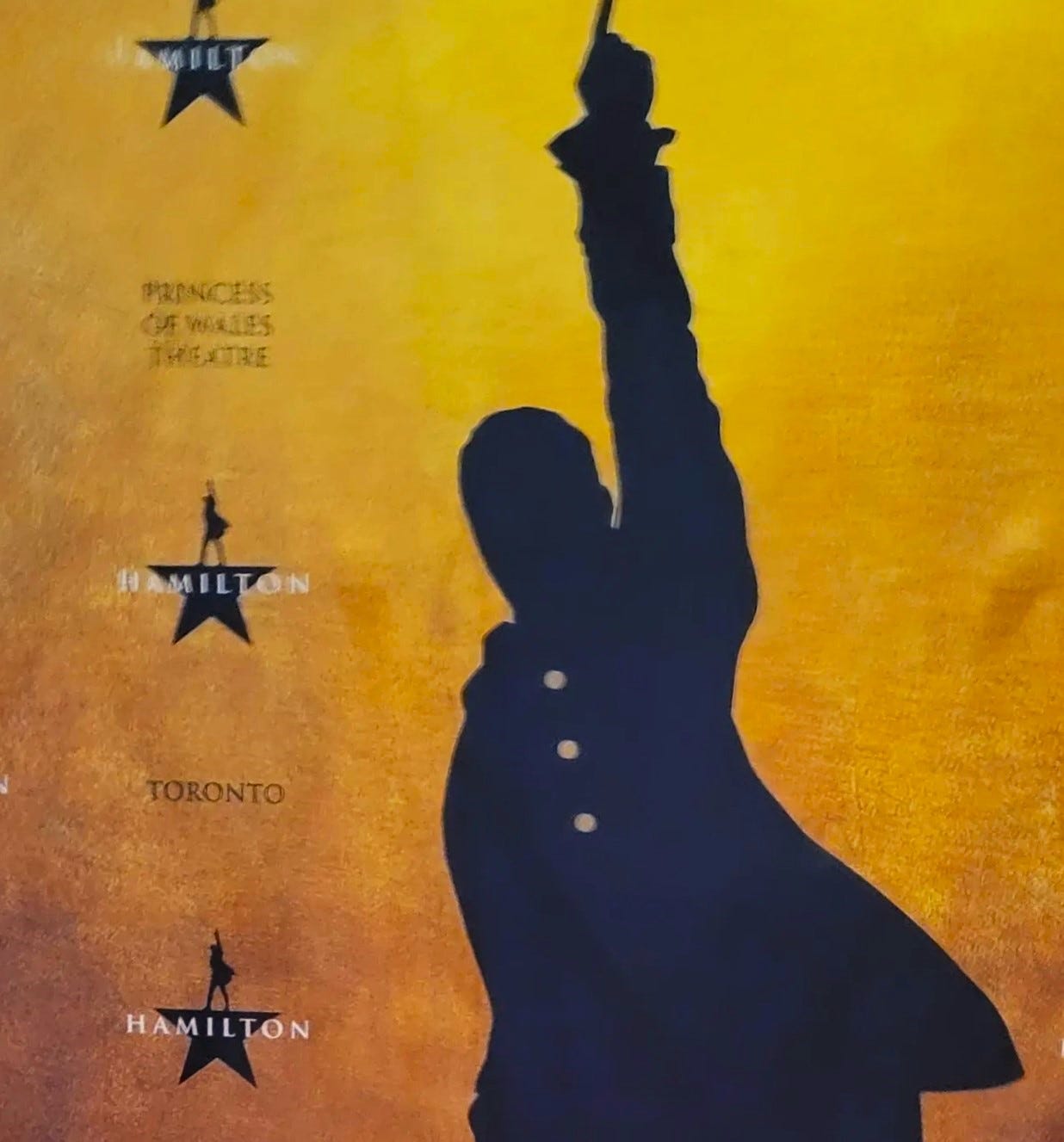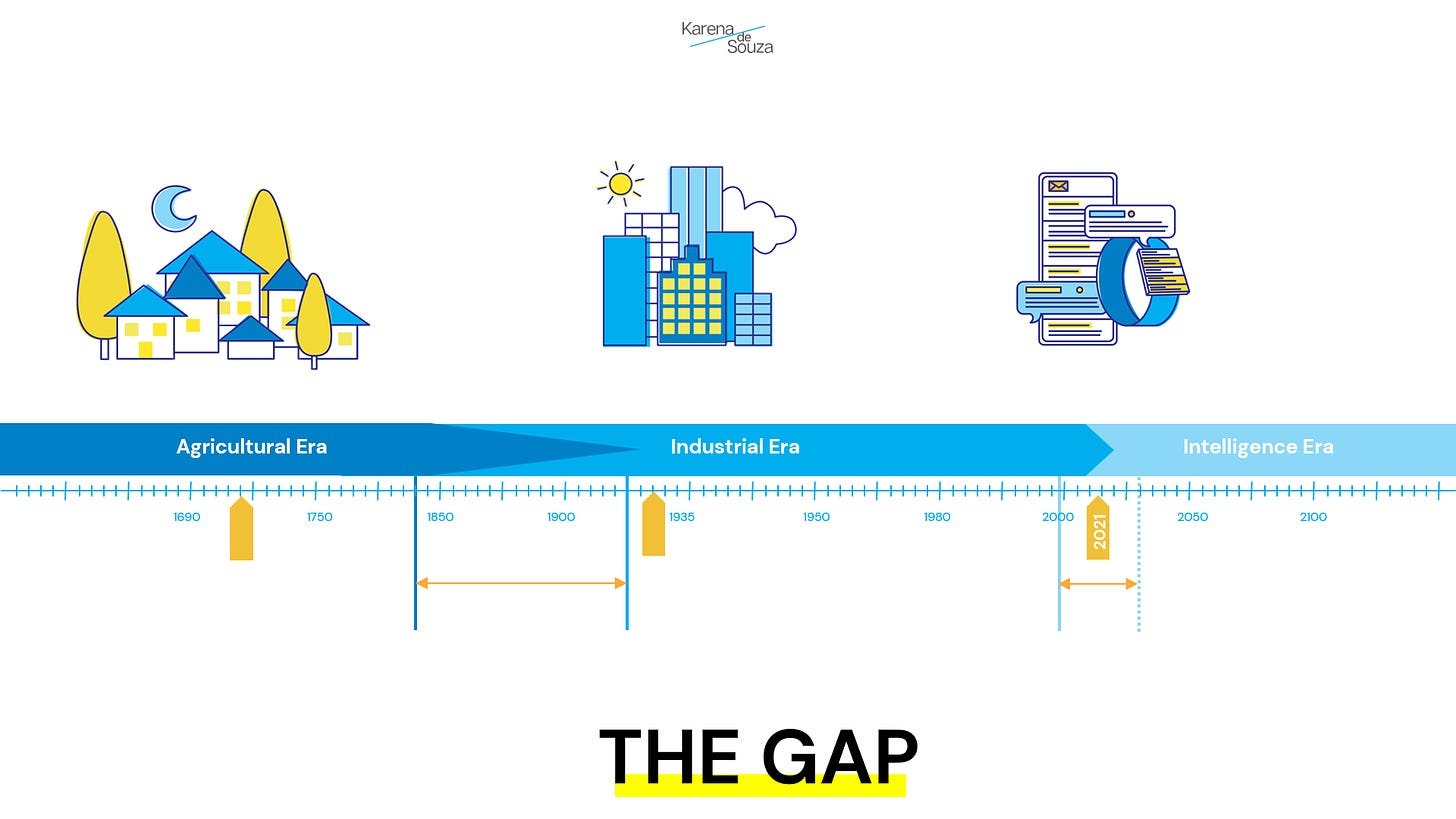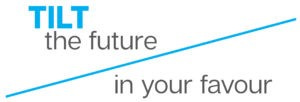
12 Mar Mind the [].. Generations ..[] Gap
The next few generations will live their entire lives with
👣 one foot in the Industrial Era, and the other
👣 in the Intelligence Era.
If there is one idea I want you to leave with it is this: Strap in.
It’s going to be a long while before we settle back into a new normal. Multiple decades. If you think our transition into the Future of Work is a well-planned and paved highway, you are in for a strange surprise. When you realize it’s a roller-coaster, however, your mindset shifts. You can sit back and enjoy the twists and turns ahead.
Technology changes continue to happen at break-neck speed. What is less obvious is the way these are seeping into the very way we work and live. And the unique opportunity it places in front of this particular generation at this specific point in time.
You will recognize thought bites from this essay-in-progress in various issues since November 2022 (E65 History Smooshes Stuff, E64 Shifts Seep Into Existence, E74 Liminality). Watching Hamilton live on stage yesterday, I realized that what I suggest is not improbable. We’ve been here before. 
“I love [this essay]. And it’s really changed the way I think about this now.”
– Charlie Becker, Parent, Prof. UHouston, (writes Castles in the Sky)
Essay: Mind the [].. Generations ..[] Gap
To truly know me, you have to know that I will do anything for my children. In fact, my accidental foray into the Future of Work started with wanting to protect and prepare my children for the future.
The Serendipity of Spaghetti
“What’s going on?” I was in the middle of draining the pasta into the colander, the hot steam giving me that “working mother’s facial”. While my hands were busy with prep, my mind was replaying the events of my work week as a “Future of Money” specialist: a project analyzing the resistance to phasing out paper cheques (checks); learning about a new eMoney called Bitcoin (funny money my husband called it); Apple’s proposed new wearable “AppleWatch”, coupled with a new concept called “Apple Pay”.
And among these new uses of digital money, a weird blip. A major Canadian bank was laying off thousands of regional front-facing staff … and consolidating their hiring efforts into attracting a couple of hundred technologists to their tech hubs. “This makes no sense.”
“Mom, I need you to sign off on my course selections.” My eldest child’s voice pierced my reverie. “Sure. Giz a sec.” I dried off my hands on the red-striped tea towel and walked over to the kitchen table to check his choices. “Why Global Studies? What happened to Chemistry?” I quizzed as he explained the units he had picked for his final two years of high school, how they streamed into the next semester’s choices and fit into his extra-curricular interests of hockey, soccer, friends … his ‘entertainment’ timetable. “And I’m not as good at chemistry. I can push my GPA up if I take Global Studies.”
My mind immediately moved into “Mom-gear” (envision a turbo-charged 5-speed … I’m sure you’ve been on the receiving end of this!). I started extrapolating all the university courses and career options he had automatically eliminated in that single decision point. I started to hyperventilate. “Does not compute!” my brain was screaming. We are clearly an immigrant-STEM household. “OK. So he does not see himself in medicine. But surely … finance, engineering, or law – one of those steady, secure middle-class career streams?”
But wait. What if those steady middle-class career options were no longer so safe, or so secure? What if we were on the cusp of a seismic shift? What happens when the dominos no longer line up as they used to? WhatIf?
I often look back at the serendipity of that moment. If his option selection had come in a different week would I have connected the dots on the pervasive impact of the Future of Work so early?
As a technologist, I’d been noticing subtle changes in the money tools available to us. Canadian banks already allowed you to deposit your cheques by phone. Simple payment and wallet apps were coming online. Banking apps were in beta. [These were the early days of FinTech. Between 2013-2018 technology would disrupt the staid world of finance]. A small span of time, but it could feel like a lifetime for my son who would go through high school and university during this same period.
In my day job as a futurist, I envisioned that it would take between 15-35 years for developments in the tech world of cloud computing, robotics, and AI algorithms to be fully integrated into our daily work life and improve productivity. It would soon create a new normal. Impacting the way we worked. No big deal. Surely society can adapt over the span of three long decades – right?
But suddenly that math was staring me in the face, his eyes gazing at me. What did that timeline mean for this child standing in front of me? Born in 1996 alongside this new technology called the internet (that changed how we connected to information) he could well be getting ready to retire in 2055 before we settled into a new work pattern. His ENTIRE WORKING CAREER lived in a state of flux.
Suddenly I felt the knots tighten in my stomach. Without the patterns of the past to guide me, what do I have to offer my teen on this journey ahead?
“Am I enough? Where do I find the toolkit from which to give my 17-year-old enough coping skills until this world finds its new footing?”
Surely, I was not the only parent facing these issues? Maybe my unique vantage point gave me a few advantages:
- I had to explain that we are stepping into a timeline that is multi-generational, not just multi-year or multi-decade.
- I had to come up with a new set of names and principles to explain to other parents and educators what was happening.
- I had to come up with a new set of guiding principles for how to embrace the oncoming period of change.
“I love [this essay]. And it’s really changed the way I think about this now.”
Charlie Becker, Parent, Prof. UHouston, (writes Castles in the Sky)
Playing the long game. In a world that is moving towards instantaneous everything and shrinking attention spans, let’s start there.
WHAT
History smooshes stuff
This transition is going to take years.
Multiples of years. Maybe even multiple decades.
The thing that has always bothered me about history books is their ability to collapse years of social angst and change and adjustments into one simple, sanitized paragraph.
“How many chapters – no paragraphs – do our history books dedicate to the plague that launched the Renaissance in the 1500s? Or the Spanish Flu?” I’d asked my audience in a recent keynote, facing a zoom room comprising mainly librarians, communicators, and educators.
“Or, to put it another way, when our grandchildren are studying the Covid Era in History Class in 2050 – our pandemic and all its economic and societal ramifications – will they read more than 3 pages of text? Unless they are doing a Ph.D. on the subject, will they spend hours rewatching footage of Dr. Fauci giving daily reports, analyzing the medical guidance that differed from state to state, country to country, that parents and workers had to study, vacillating between decisions to mask, to return to work or school, to travel, to host thanksgiving, to vax or not to vax? How many pages will be earmarked for the years 2020-2023?”
“History smooshes stuff,” I explained. And that is the problem.
“What hit me hardest was the line about imagining how textbooks of the future will offer only a few sentences summing up this pandemic. It will perform an act of compression that erases the pain, suffering, and uncertainty of that time.” – Cam Houser, Prof UAustin
Modern cars did not show up on day one of the Industrial Era. The first cars were actually visually modified horse-drawn carriages, with an engine where the horse would have been, and a steering wheel replacing the coachman and his reins. Fast forward to 2023 and we are moving towards autonomous vehicles and drone delivery. With cars came roads, then highways, … and commutable cities. Technology drives other changes.

This shift out of the Industrial Era has already started. It is in progress. Whether it is ChatGPT, GPS or Slack, we
continue to solve problems, developing tools, products and processes as we move into this new Era. Change is a continuum.
We are entering a phase transition of society
It’s easy to find the date of the start of the Industrial Era. It starts with a piece of paper – the patent filing for the invention of the steam engine circa 1690. That is a clear date on a timeline.
But here is the thing: it is not as simple as ”one era ended” on this day and “another began”. The drawing on that sheet kicked off a phase transition of society.
Life itself would gradually change to respond to the work opportunities these new technologies brought in this Industrial Revolution: factories were built, manufacturing replaced agriculture as the main industry, and families moved into cities closer to work, and away from the communities within which they had lived for centuries. Paths became roads became highways.
As our living dynamics shifted it also affected education, politics, and society. Unfortunately, they didn’t switch at the same speed. The more entrenched the system, the longer it took to make the adjustment.
If the idea of a phase transition is confusing, consider something we’re all familiar with: water.
Water as ice.
Water as liquid.
Water as steam.
The phase transitions of water occur when it is no longer fully the one, but not yet the other, just a sloppy slurry. The gradual melt from an ice cube when it co-exists in liquid and solid form, then responding to constantly increasing heat to gradually turn that liquid to steam. This duality/neither-here not-yet-there state of liminality can feel unsettling.
Tools are already showing up to facilitate the changing nature of work in the beginning part of this new era and relationship to the abundance of information: Netscape, Uber, AirBnB, Slack, Google Maps, Notion. They replace their industrial era functions. They may not survive in their current format 50-100 years from now. Indeed some, like Netscape, have already dropped off the horizon, being replaced by next-generation Mozilla and Google. With ChatGPT, Web3, and the Metaverse now available, these too may get replaced.
And the impact is already spilling beyond the world of work and beginning to seep into other areas of our life, such as entertainment and education.
The Past is not the Future
“Hey, Toto. We’re not in the Industrial Era anymore”. It’s now clear.
We are moving into a space in time where we can no longer rely on past patterns to guide our future behaviour. We will have to discover/get to create a new way to live half our lives in the new World of Work while having to study, live and pay taxes in the dying Industrial Era.
What might/does that look like? Depends on where you are today. Remote and nomadic work. Global, gig work. Multiple jobs, multiple revenue streams. Web3, apps. Some of these were originally designed as benefits. Others are burdens that are the side effects of a world seeking more efficiencies and higher stock evaluations.
To co-exist synonymously in two juxtaposed worlds involves adjusting our point of view, and embracing some different skill sets. Read to the end, and I will suggest a straddle strategy – three ways to cultivate this mindset.
HOW
I’m a lioness on the prowl
“Wow. That means he’s going to spend most of his adult working life straddling two worlds.”
Once this thought entered my head, I could not shake it. I could not put this genie back in the bottle. It is one thing to advise businesses on the impact of the Future of Work. But this was my kid. Like a Mama Lion, all I wanted to do now was protect and prepare my young cub to hunt on his own. I was on the prowl.
This young‘un would constantly be trapped straddling two worlds:
- 2014: Selecting his university degree. His choices were courses designed for a dying empire, pumping out worker widgets for the Industrial Era. Universities and schools could not yet envision the scale of change on the horizon. And the education ship takes the longest to turn around.
- 2018: Starting work. He would step into a workspace already fully embracing the new Future of Work. No more 9-5. No more career ladder.
- 2055: Through his working life, he should expect a career roller-coaster. Instead of a single employer with a guaranteed pension plan, he’ll see multiple revenue streams and side hustles. 24/7 and portfolio careers would replace the industrial model of one career/9-5. Gig work replacing full time. Hybrid work models. A global workforce.
And
… all this was just the impact of the internet on the world of work.
Steadily, I started connecting the dots about the knock-on impact of these changes. I envisioned even more extensive ripples. Could this change stretch over more than a few decades? Could it impact more than one generation? Education. Transportation. Cities. Society. Politics? Change that would reset the basic frameworks on which we peg the rest of our lives. (I have a matrix – come talk to me). Change that echoed a past transition – from the Agricultural to the Industrial Era.
So what do we know?
- Change is inevitable
- Those who understand how to manage during flux will be in demand
Shifts seep into existence
Shifts on this scale take time. Definitely years. Often decades. Sometimes centuries. They don’t suddenly appear. They seep into existence.
The Industrial Era may have started in 1690. But there is no clear date on which the Agriculture Era formally ended. The closest I can approximate is the 1930s in the USA. The Great Depression showed that it was now difficult to live off the farms, and social safety nets such as Social Security were created as part of the New Deal in 1935. If that signals the end, then the gap between the start of the Industrial Era and the end of the Agricultural Era spanned from 1690 to 1935. Or 245 years before we exited the Agricultural Era.

Sit with that.
245 years of change that saw the end of slavery, a move away from feudal systems, a push for democracy across the world, two world wars, much rebellion, the birth of labour unions. And so much more.
245 years / approximately 30 years per generation = 8.16 generations.
That means that entire generations lived AND DIED before our world established its new normal. They lived in this constant state of transition. Of flux.
And now we find ourselves at another inflection point in history as we transition out of the Industrial Era and into the Information Age.
The cycle of change has sped up. Society normally resists change. But Covid accelerated my Future of Work timeline by 10-15 years. In 2020 we were embracing distance learning, remote, and gig work – changes I had not envisioned until 2030. (This calculation does not include the impact of climate.) We are all living in the middle of this transition. Three generations or more will live through this transition phase. That is why it is urgent to have this conversation now. Understanding the scope of the transformation ahead enables us to be better prepared and mentally agile.
“Entire generations will live and die in this gap.”
These are my children, and my grandchildren that we are talking about.
And yours.
Right now, in kitchens, classrooms, and living rooms across the world, we are raising the next Jacinda Arden, Boris Johnson, and Barack Obama. Your toddler, teen and twenty-something could be the political and economic leader of 2050 and 2070. How do we equip them to make and manage this era-level transition?
My children are at the front end of this “shift” into “ages”
My own children are Generation Z, born alongside the Internet after 1995. Their generation is dealing with the contradiction of living in two eras.
Thanks to the internet they access, process, and relate to data differently from our generation.
The same son who stood at my table, launching this discussion, has now been in the workforce for five years. He is living that straddle. Daily. He could be creating transition plans to move workforces out of the industrial era. Or navigating city bureaucracy for personal projects. He wishes he lived in the industrial era workday of 9-5. Instead, it is 24/7 always-on.
He loves to see how this jigsaw-piece world fits together. He added Roman and Greek history units to his business degree. He regularly researches local history in his travels – backpacking through SE Asia. Then South America. Then Europe.
His siblings are exploring interests that give them additional revenue streams.
We Boomers and GenX (who were raised with in-person meetings and conversations, HR-directed career paths, paper, pens, and encyclopedias) have to learn how to talk to them in their language. Have you tried explaining a rotary-dial landline phone or floppy drive to GenZ? What an advantage to not know any different! They approach their future with the hubris of youth “naive enough” to believe they can make huge change.
Generation Alpha (born after 2015) in particular has a really good chance of being alive, and playing with their own grandchildren on January 1, 2070, and January 1, 2100. (recent NatGeo stat: 50% of all children under the age of 5 today will live to age 100) The changes in our world between 2000-2020 have been dramatic. Can you imagine what humans will need to survive and thrive in 2070? Or fifty years later in 2120?
We, too, are a transition generation
Our generations (Boomer, X and Millennial) are also making this crossover. If you’ve been feeling a sense of displacement (time, social identity) this may explain why. It is because someone’s messing with the frameworks we have always trusted. What worked before is not guaranteed to work in our tomorrow – education, career paths, energy generation, finance. The list goes on. Some facets of our lives will make the move to the new era faster. Others, dragged down by bureaucracy, will lag. We have to learn to exist within and bounce between two worlds at the same time. Shades of Everything Everywhere All at Once.
The bad news is that we (particularly those born before 1995) need to rewire our expectations – things we may have taken for granted like full-time employment, social security, pensions etc. are not guaranteed to be available.
The good news is that the Future of Work is uncharted and evolving territory. We get to write new rules and create new tools.
Impossible? It’s been done before in history. With generations whose way of life had been disrupted by the beginning of the Industrial Era. With a bunch of twenty-somethings intent on and able to create change.
The Explorer Generation
As they move into uncharted territory, Generation Z and Generation Alpha need a skill set quite different from their parents’.
The Industrial Era needed a workforce that was compliant and managed a dwindling pool of natural resources.
The Intelligence Era is one of an abundance of ideas and connections.
Enter the Explorers. These new global citizens need to be comfortable reading the terrain, navigating by instinct instead of following a map.
They need a certain blend of survival instincts. These augment (maybe even superseded) the IQ (Intelligence Quotient) skills that were the focus of our education – skills with a rapidly decaying half-life. It is no accident that in the past five years we see a heavier focus on the more persistent EQ (Emotional Quotient) skills such as grit, resourcefulness, and resilience. Community building, communications, and critical thinking. We encourage them to embrace dead ends as discovery – not failure – and are comfortable doing a U-turn.
They freely share their learned wisdom with those who will come after.
I have rebranded the EQ skills as our HEIRLOOM skills. They’ve been carefully polished and passed down from our great-grandparents, one generation to the next generation – generations that survived tremendous change, wars, crossed oceans, all without degrees and PhDs. This is what I, as a parent, can pass along to my teen to help them navigate uncertainty.
“You’ve taken me from scared to hopeful. Dejected to empowered.” — Trevor Brown
A STRADDLE STRATEGY TO GET THROUGH THE GAP
“The past guarantees you nothing in the future if the rules change.”
— Joel Barker
Past performance does not guarantee the future
- The steps we followed to career success — home ownership, career ladders, university college and course selection, and more — no longer hold true for these younger generations. While it is proven, natural and easiest to “parent as we were parented” looking to our journey to offer advice, hold back on the cookie-cutter playbooks. Whether we are parents, educators or caregivers, hold back on the “When I was younger …” stories.
Pause.
Only share the lessons worth sharing. Most often those will be persistent heirloom skills – skills of flexibility, creativity and collaboration that allowed our ancestors to migrate and explore new lands.When talking about the future with young adults, use open-ended and positive vocabulary: “What could success feel like and mean to you?” as opposed to “You will feel successful when you land that full-time job (with pension)”.
Get comfortable with transition states and change.
- Train your children from young to note their emotional reaction to liminal states – the not yet there and no longer here moments. Expect frequent change. Explain that this is natural and happens often: each time we return from vacation, move to a new school, or take a new position at work. One hack is to keep some consistent interests or habits as a thread from your old life until you create a new framework.
Many digital nomads, expats and immigrants deal with this particular experience of living in two head spaces. John Nicholas frames this as building a bridge from your old life to your new one. He did it by joining a running club. I do it by joining a local choir. The language of music, like that of movement, remains consistent and is universally spoken.Learning transitions is a life skill but will have elevated importance for these two generations.
“Rise Up”
- Talk about the endless opportunities that exist in a world unencumbered by old rules. We get to reimagine what could be. We get to design and create new jobs out of all the roles that do not yet exist. [Reminder: in 2013, roles like social media manager, ESG research analyst, and climate risk manager did not exist.] Make the future exciting!Balance that discussion with the deep anchors in your life that provide emotional stability – over generations. Normalize the cycles of iteration and failing as part of exploring. Reframe risk-taking. Talk about the particular skill sets that made exploring exciting and appealing.
The future is bright
Finally, here’s an idea that is out at the edges. With so much in flux, the transition between the two eras is inevitable. We get to choose how we navigate this gap. Some segments of our lives will transition faster than others.
But this is exactly what makes it exciting. We live on the cusp of new possibilities. Now is our chance to decide what our great-grandchildren will read when they open their history books in 2070 and read how we moved out of the Industrial Era and into the Intelligence Era.
This opportunity to reshape society is not gifted to every generation. “History has its eyes on” … us. We exist at a particular point in time where we have this power.
Let’s make great use of it.

Thanks to the many editors, reviewers, and encouragers who made this a more complete and engaging read:
Latham Turner – “Just one concept”, Zakk – “Phase transition”, Kelly Davis – for the title, Trevor Brown, Parker Thomas, Cam Houser, Kirsten Corbett, Melissa Menke, Chris Coffman, Randy Garman, Charlie Becker, Michelle Varghese, Aimen Batool and the Women of WoP.
This essay was written the old-fashioned way, without ChatGPT. It was powered by (and reflects back on a similar point in history) the Hamilton soundtrack. I also, recommend watching Everything Everywhere All at Once.
Dear Tribe Tilt member
This was definitely a longer read than normal! But I hope you have a similar reaction to Kelly’s:
“Wow! Love reading this entire piece all put together. I am glad I sat down to read and digest it.” — Kelly Davis, EduPreneur writes Walking in Lisbon
Join me in welcoming our new members joining from Canada, Australia, and Mexico. You join a group that believes we can make a difference to the people and places that are precious to us. We are a collaborative, supportive and engaged community – so feel free to add your voice to the conversation. Leave a comment. Your question or observation may be just what is needed to unlock an idea or opportunity for someone else.
Because the best idea can come from anyone, anywhere, at any time.
Is this your first experience with our newsletter? Come join us in Tribe Tilt.
Stay healthy until we chat next week,
Karena




No Comments